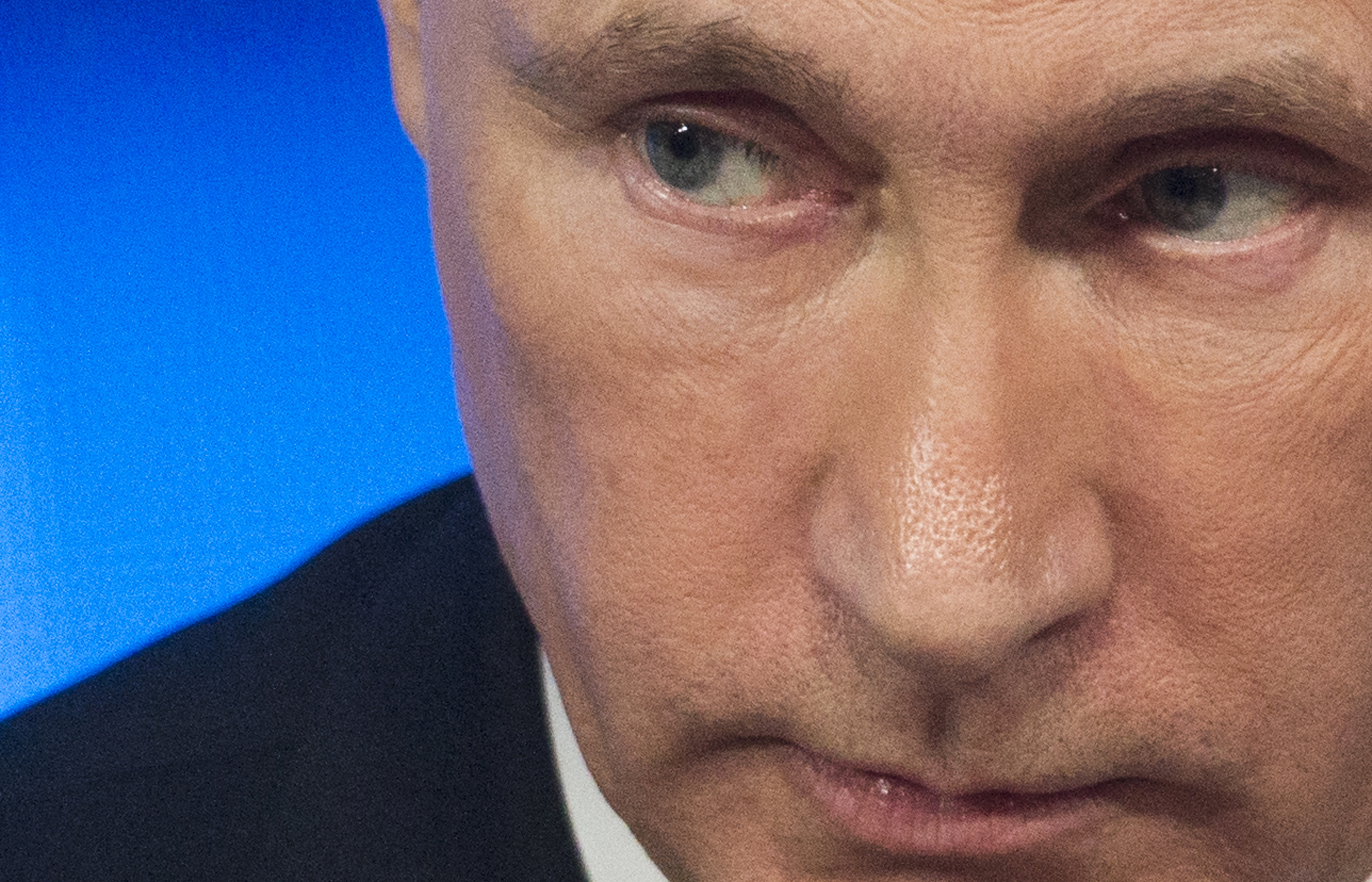Putin signs law against “undesirable” NGOs

Persons working inside Russia for foreign organizations or firms listed as “undesirable” can get hefty fines or get sentences of up to six years in prison.
Norway says it is important to continue giving grants to cross-border NGO cooperation.
First presented to the State Duma in January, the legislation has passed three readings before being sign into law by President Vladimir Putin. The announcement was posted on Kremlin’s portal on Saturday.
The law gives prosecutors the right to decide who are “undesirable” foreign organizations that poses a threat to Russia’s defense capabilities, security, public order or public health, the announcement reads.
If found undesirable, authorities can ban and shut down the organization, including foreign firms since the law is not linked to non-profit organizations like the so-called “Foreign Agent” law is.
Both Amnesty International and Human Rights Watch have condemned the law, claiming it is aimed to “criminalizing lawful activity and squeezing the life out of free speech and associations.”
Like the “Foreign Agent” law of 2012, this new law appears to be designed for selective implementation since the text in the law does not specify which activities are supposed to be “undesirable”. Because of the law, other law-texts have also been changed, opening for denying entry to Russia people from foreign- or international organizations that are listed as undesirable, according to the information posted on the President’s portal.
The EU on Sunday said Putin by signing the law has taken a “worrying step in a series of restrictions on civil society, independent media and political opposition.”
“This law will have a further negative impact on the work of civil society in Russia. It will restrict freedom of speech and media as well as pluralism of opinion,” the statement from EU’s foreign service reads.
The law further prohibits banks or other financial institutions from carrying out money transfers if any of the receiving or sending part of the money are an organization listed as undesirable.
Boost to media censorship
Further, the law could boost Russian media’s self-censorship since the text opens up for prosecuting individuals or media outlets who are reproducing materials published by any organization listed by the prosecutors as undesirable.
Asked by The Moscow Times what this means, lawmaker Anton Ishchenko says that it won’t prevent news organizations from reporting on “undesirable organizations,” but it will bar them from publishing slogans or providing links to the material published by these entities.
BarentsObserver is one example of an online newspaper that are owned by a foreign firm, the Norwegian Barents Secretariat with three branch offices in Russia, and which use to link directly to original news sources in Russia including different non-governmental organizations.
Anton Ischenko dismisses earlier claims by the OSCE that the new legislation would undermine media freedom.
“My whish is that no organization makes it onto the list. But if there indeed are foreign organizations that threaten Russia’s security, then they must be stopped,” Ishchenko says to The Moscow Times.
Tightens the screw
With the new “undesirable” law, Russia tightens the screw on foreign influence further. Human rights activists Lyudmila Alekseyeva has earlier said the law “puts those who don’t fall under the “Foreign Agent” law on a knife edge, Radio Free Europe reports. Also Putin’s own human rights ombudsman has opposed the law.
In the Murmansk region, three non-governmental organizations are so far listed as foreign agents; the LGBT-friendly Maximum, the Humanist Youth Movement and the environmental group Bellona Murmansk.
In March this year, the Nordic Council of Ministers closed its offices in Russia after being branded by Russian authorities as foreign agents. Nordic information offices in both Murmask and Arkhangelsk were for nearly two decades facilitating for cross-border cooperation.
Last week, BarentsObserver reported that the popular Youth House Mr. Pink, that for years has been cooperating with the youth house Tvibit in Tromsø in northern Norway, closed their doors for ever after being asked to register as foreign agents.
The cooperation between Mr. Pink and Tvibit was financially supported by the Norwegian Barents Secretariat.
Continues with Barents grants to NGOs
Many of the non-governmental organizations in Murmansk region are partners with Norwegian organizations, teaming up in the well-known people-to-people cooperation across borders in the Barents Region.
Margrethe Alnes, project coordinator with the Norwegian Barents Secretariat, says to BarentsObserver that the new laws do not hinder financial support for cross-border cooperation between NGOs. Alnes, however, underlines that the Secretariat asks the Norwegian partners to be aware of the developments and have a dialogue with their Russian partners about the implications. The Norwegian Barents Secretariat does not grant directly to Russian NGOs.
“It is the Norwegian partner that gets the grant and are responsible for the spending,” Margrethe Alnes explains.
The Norwegian Foreign Ministry in Oslo also says they are in dialogue with Norwegian NGOs that are receiving grants for cooperating with Russian partners.
“So far we have limited experience with what it means in practice for an organization to be registered as a “foreign agent”. Therefore, we are considering the different cases individually,” says Deputy Director Kristin Enstad with the Foreign Ministry to BarentsObserver.
“We are in dialogue with the various project partners on how they can work in the situation they are in. Is it agreed that the work still can be done, we continue the funding to those projects we consider worthy support,” Enstad says.
“NGOs are important for democracy”
She says the Ministry is critical to the fact that Russian authorities want to register Russian organizations as “foreign agents.”
“We consider NGOs as an important part of any democratic society. These organizations contribute to important public debate and are doing useful work in many areas in society. There are ongoing cooperation projects between Norwegian and Russian NGOs in topics such as environment, health, human rights, indigenous peoples, childcare, youth work, culture, sports etc. This is normal people-to-people cooperation between neighboring counties,” says Kristin Enstad.
“We hope this kind of cooperation can continue.”
Related stories from around the North:
Canada: Politics, media misinformation & #sealfie, Eye on the Arctic
Norway: Nordic information office suspends activities in Russia, Barents Observer
Russia: Arctic-based Russian blogger walks free, Barents Observer
United States: Proposed cuts to public broadcasting funding rile rural Alaska radio, Alaska Dispatch



